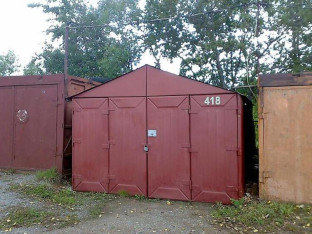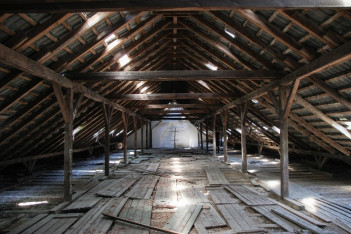Privatisation of a garage in a cooperative
Privatisation of a garage in a garage-building cooperative (GBC) is a common practice among citizens who wish to secure ownership rights to a property built during the Soviet period. In the absence of documents or legal registration, the owner of such a garage cannot legally dispose of the property: sell, gift or bequeath it. This creates numerous risks, including the loss of the right to use the property in the event of the liquidation of the cooperative or a change in the status of the land.
Legally formalised privatisation protects you from claims by the state, third parties or local authorities, and also gives you the opportunity to obtain title documents for the garage.
Conditions for privatising a garage in a cooperative
To start the privatisation process, you must meet a number of conditions that allow you to legalise your ownership rights. Membership in the GBK is only the beginning. A number of documents and formal procedures are required. Before proceeding with the formal registration, be sure to check that:
- You are a member of the garage cooperative, as confirmed by a certificate or minutes of the general meeting.
- You have a document confirming your right to use the garage (a certificate from the garage cooperative or an old order).
- The garage is a capital structure, i.e. it has a foundation and a roof.
- The land plot has legal status: it is in permanent use by the garage cooperative or is registered for privatisation.
These points form the basis for further action. In the absence of land rights or technical documentation, the process will require additional approvals or, in some cases, recourse to the courts.
After collecting all the supporting documents, you can proceed to the preparation of technical documentation and submission of documents to the local government or the Centre for Administrative Services.
The main stages of privatising a garage in a cooperative
The procedure for registering ownership rights requires a series of legally significant actions. Involving a lawyer at the initial stage allows you to avoid mistakes and delays. Here is a typical algorithm of actions:
- Obtain a certificate from the GBK about membership and use of a specific garage.
- Applying to a land management organisation for the preparation of technical documentation.
- Submitting an application to the local council or ASC for permission to privatise.
- Registering ownership rights in the State Register of Property Rights.
Each step is accompanied by the preparation of applications, extracts, approvals and decisions. That is why it is important to act in accordance with the requirements of the law in order to avoid refusals.
The final stage is obtaining an extract from the State Register confirming your ownership of the garage.
Legal risks in the privatisation of a garage: what can go wrong?
Privatisation of a garage in a GBK may encounter legal obstacles. The reason is often incomplete documentation or lack of rights to the land under the garages. In such cases, it is important to act with legal nuances in mind. The most common problems include:
- The land under the GBK has not been transferred to ownership or use — it must be formalised.
- There is no technical passport for the garage — it must be ordered from the BTI.
- Unauthorised construction — requires legalisation through the court or DABI.
- Lack of registration of the cooperative — legal registration of the object is complicated.
A legal audit of the situation before the start of registration will help to avoid risks. That is why the participation of a lawyer is the key to a successful outcome.
Advantages of legal support
The registration of a garage in a cooperative involves many formalities that can be successfully overcome with legal support.

Professional assessment of the case — a lawyer will immediately identify ‘weak points’ and draw up an action plan.

Representation in courts — a lawyer works with the Administrative Services Centre, the Bureau of Technical Inventory, and local authorities.

Preparation of documents — preparation of applications, explanations, complaints, and appeals.

Protection in conflict situations — representation in court in case of refusal to privatise.
Thanks to the experience of lawyers, the chances of successfully completing the procedure are significantly increased, even in complex or controversial situations.
Frequently asked questions about privatising a garage in a cooperative
Question
Is it possible to privatise a garage if the GBK is no longer functioning?
Answer
Yes, but you need to prove the fact of use, the right to the garage and the circumstances of its construction. Most often, the registration takes place through the court.
Question
How long does the process of privatising a garage in a cooperative take?
Answer
On average, from 2 to 4 months, depending on the availability of documents and the coordination of actions with local authorities.
Question
Is it possible to privatise a garage without a cadastral number for the land?
Answer
Without a cadastral number, it is impossible to register a property right. In such cases, the right of use is formalised or a land surveyor is consulted.
Question
What documents are required at the start?
Answer
Usually, a certificate from the State Building Committee, a copy of the owner's passport, land documents (if any), old orders or a technical passport.
ConclusionPrivatisation of a garage in a cooperative is a legally significant procedure that allows you to protect yourself from loss of property and dispose of it legally. Given the specifics of old GBK and the imperfection of documentation, registration is often accompanied by difficulties. However, with the help of a lawyer, the process becomes clear, consistent and much more efficient. The Consultant team has extensive experience in handling garage privatisation cases and is ready to protect your interests in any legal situation.




































